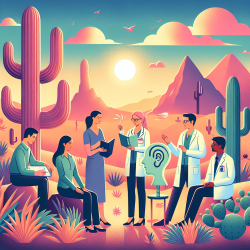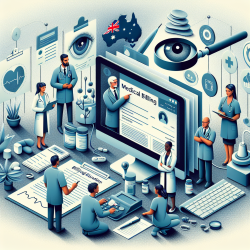The field of Maternal and Child Health (MCH) is dynamic and ever-evolving, requiring practitioners to continuously update their skills and knowledge. A recent study titled "A New American University Model for Training the Future MCH Workforce Through a Translational Research Team" offers valuable insights into how translational research teams can be leveraged to improve practitioner skills and foster diversity in the workforce.
The Power of Translational Research Teams
Translational research teams are designed to bridge the gap between academic research and practical application. By engaging students from diverse backgrounds in real-world research projects, these teams provide invaluable experiential learning opportunities that prepare future MCH professionals for the challenges they will face in their careers.
The study conducted at Arizona State University (ASU) highlights how translational research teams can enhance student engagement by integrating them into multidisciplinary research efforts. This approach not only improves students' research skills but also fosters collaboration and practice development.
Key Outcomes of the Research
- Diversity and Inclusion: The research team at ASU successfully engaged a diverse group of students, with 61% identifying as racial or ethnic minorities. This diversity enriches the learning environment and prepares students to work with diverse populations.
- Skill Development: Students involved in the translational research team reported significant improvements in their research skills, including literature reviews, data analysis, and evidence-based decision-making.
- Community Impact: The involvement of community partners in research projects ensures that the outcomes are directly applicable to real-world challenges, benefiting both students and community organizations.
- Cultural Competency: By emphasizing cultural competency, the program prepares students to better serve underrepresented groups, ultimately improving communication and health outcomes.
Implementing Translational Research in Your Practice
If you're a practitioner looking to enhance your skills or engage in further research, consider implementing elements of translational research teams in your practice. Here are some steps you can take:
- Create Collaborative Opportunities: Foster partnerships with academic institutions or community organizations to create collaborative research opportunities that can benefit both your practice and the community.
- Diversify Your Team: Actively seek out team members from diverse backgrounds to bring different perspectives and ideas into your projects.
- Pursue Continuous Learning: Encourage ongoing education and training for yourself and your team members to stay updated on the latest research and best practices in MCH.
- Cultivate Cultural Competency: Provide training on cultural competency to ensure that your practice is inclusive and responsive to the needs of diverse populations.
The Future of MCH Workforce Development
The findings from this study underscore the importance of innovative educational models like translational research teams in preparing a diverse and skilled MCH workforce. By integrating experiential learning opportunities into academic programs, we can better equip future practitioners with the tools they need to succeed.
If you're interested in exploring further how translational research teams can enhance your practice or contribute to workforce development, consider reading the original study: A New American University Model for Training the Future MCH Workforce Through a Translational Research Team.










